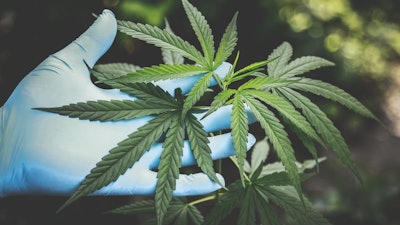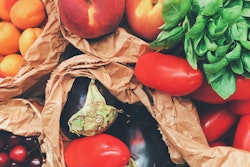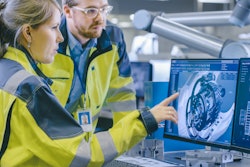
Consumer demand for products containing cannabidiol (CBD) and other cannabinoids in the food and beverage industry is increasing. As toilet paper and hand sanitizer sales rose in the first week of shelter-in-place orders, THC and CBD-infused edible products also saw a 33% increase in sales. The following week, sales for these cannabinoid products doubled.
While consumer demand continues to rise, trusted food and beverage brands are considering cannabinoid infused products to help replace weakening product sales in other categories and to stay on-trend. Household name brands are developing products that feature CBD, but before food manufacturers can bring these products to market, they need a reliable source of high-quality cannabinoids at scale. Furthermore, in order to meet regulations, they will also need assurance that cannabinoid ingredients are free of contaminants, including the intoxicating cannabinoids, like THC.
Fortunately, there are production methods that exist today that address these quality and scalability concerns. Cellular agriculture, for instance, a process where single cell organisms can be used to produce all kinds of useful compounds and proteins, has been widely employed over the past 40 years. Examples of its use range from vitamins and food ingredients to pharmaceuticals. Scientists now harness this method to create cannabinoids - producing them at vastly higher yields as compared to traditional plant agriculture. By utilizing cellular agriculture, product manufacturers can now reliably source 99% pure cannabinoid isolates as raw ingredients to better fit their manufacturing supply chain requirements.
Lack of compliance guidelines to date have created challenges for the industry and caused delays in bringing CBD-infused products to market. Perhaps the accelerated demand for CBD products driven by the COVID-19 pandemic is proving a catalyst to resolve this regulatory ambiguity.
The FDA recently announced a call for data and research into the benefits of cannabinoids like CBD to gather insight in the hopes of establishing the guidelines that food and beverage companies would need to feel confident in moving forward. Legal guidelines would force producers to ensure the consistency and purity of cannabinoid ingredients, through standardized analytical methods, so that manufacturers and consumers alike could have confidence that the data and quantities on the label reflect what’s in the bottle.
The accuracy of CBD product labels was tested in a recent study by Mile High Labs, and revealed that out of nine samples of CBD products on the market today, only four products reported to contain the actual amount stated on the label. Some of the results showed that samples contained only 60-80% of the advertised CBD, while others reported to exceed up to 210%. Contamination also proved an issue as samples tested positive for THC, as well as pesticides and heavy metals. While the levels of the contaminants did not go above federal standards, consumers shouldn’t have to be concerned about potentially “getting high” or ingesting potentially harmful agents.
As the CBD-infused food and beverage market continues to take off, utilizing cellular agriculture presents an opportunity to completely remove the operational risks of plant cultivation methods while maintaining product consistency and producing a full range of cannabinoid isolates. Furthermore, cellular agriculture offers a scalable and sustainable method of cannabinoid production that only utilizes 1/10th of the land required for agricultural production and can produce over 100 times the product yield.
Traditional agriculture faces many challenges when it comes to cannabinoid production, particularly in regard to environmental and biological contamination which can negatively impact quality. As cannabis plant varieties are limited in the number and concentration of different cannabinoids, plant cultivation also poses a fundamental limit for companies looking to unlock the potential of some of the 200 rare cannabinoids that have their own reported utility. Cannabinoid ingredient companies utilize cellular agriculture via biosynthesis and large-scale fermentation to solve these issues. The process is analogous to plant agriculture, but instead of harvesting crops of plants, strains of yeast are developed to produce the desired cannabinoid, grown in large fermentation tanks where the resulting cannabinoids are harvested and purified.
Soon food and beverage products with CBD ingredients will take up more space on grocery store shelves. As more consumers buy CBD products, food and beverage product manufacturers will need and demand a reliable supply chain that can produce high-quality, pure CBD ingredients at scale. Cellular agriculture is best suited to create CBD and other raw ingredient cannabinoids at the rate and high standards that the food and beverage industry requires. This approach will enable food and beverage producers to begin introducing CBD infused products that are well-positioned to meet or exceed the coming regulatory guidelines and satiate the anticipated high demand CBD consumer market.


















